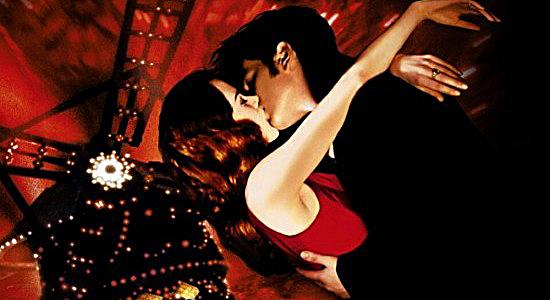
Most movies you just watch. The images from the screen reflect into your eyes and are processed somewhere or other in the intricate folds of your brain. It’s an experience of almost scientific regularity. You laugh when you’re supposed to, cry when you’re supposed to, huddle up against your boyfriend and squeeze him tight when you’re supposed to.
But some movies you feel. They transcend the sensory. These might not be the best movies, the best acted or the best written. They might not be the most intellectually stimulating or complex. But there is something about them, some ethereal quality that allows them to swirl around and envelop you when other movies can only hope, at best, to be projected in your general direction.
For me, “Moulin Rouge!” is one of those movies. It’s been 10 years since it was released, but it still ignites something within me just as strongly as ever, each viewing strengthening, not diluting, the effect. It’s difficult to pin down the exact reasons why this movie strikes such a cord with me, especially considering that part of its charm is that it defies the kind of thinking that usually presides over how we discuss movies. It’s chaotic. It’s silly. It’s abrupt. It’s utterly unconcerned with seamlessness. It should be a mess.
OK, actually, it is a bit of a mess. But damn it, it has heart. It’s constructed with such obvious joy for life and genuine zeal for storytelling that I can’t help but fall head over heels.
If I were to heap the credit on one person for this magical film, it would be the director Baz Luhrmann. More so than any other factor — more than Nicole Kidman’s electrifying performance as Satine or Ewan McGreggor’s earnest turn as Christian, more than the powerful and emotionally charged musical arrangements, more than the fantastical idealized setting — Baz’s direction is what makes “Moulin Rouge!” sing.
It’s what makes my skin tingle just to think of it. It’s what fills me with warmth and an otherworldly sense of contentment whenever I watch it, even during the moments of despair. And it’s part of what lead me to become the film geek that I am today.
The thing is, Baz Luhrmann really freakin’ loves movies. And in “Moulin Rouge!” that love of film is more apparent than just about any other movie by any other director. Every frame of every scene is soaked in it. The jubilant musical numbers revel in it. The somber moments of rejection and loss simmer in it.
And this love — this love of cinema, this love of storytelling, this love of love — is contagious. It spreads from Baz to the film itself and, finally, to the audience, washes over them, washes away the flaws and the disappointments. And with so much love and care put into a product, and with a product that so much seethes the very same love and care that was put into it, how could you not love it? How could you not let yourself be swept up in it, even 10 years later? Clearly, I was unable to resist the charms. But I know that I can’t wait to watch and feel it again and again, for however many more decades as it’ll let me.